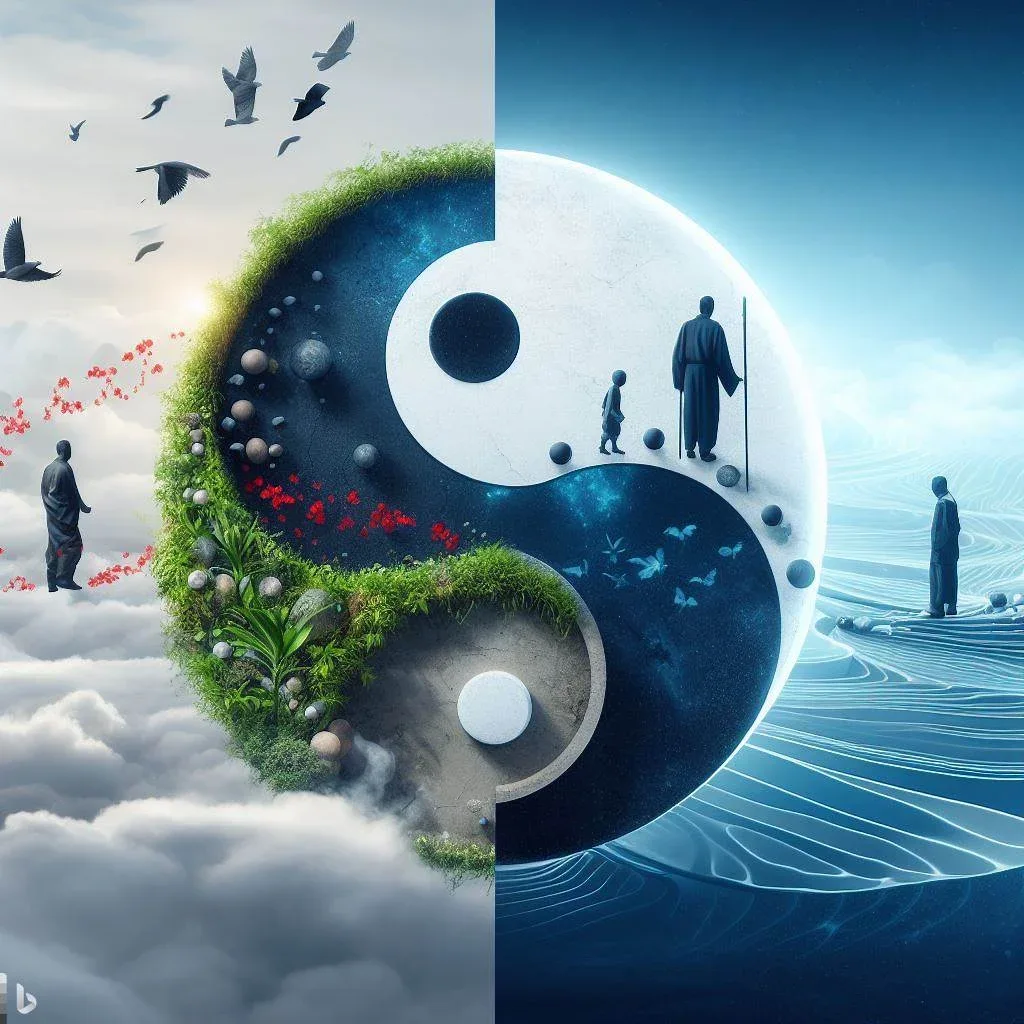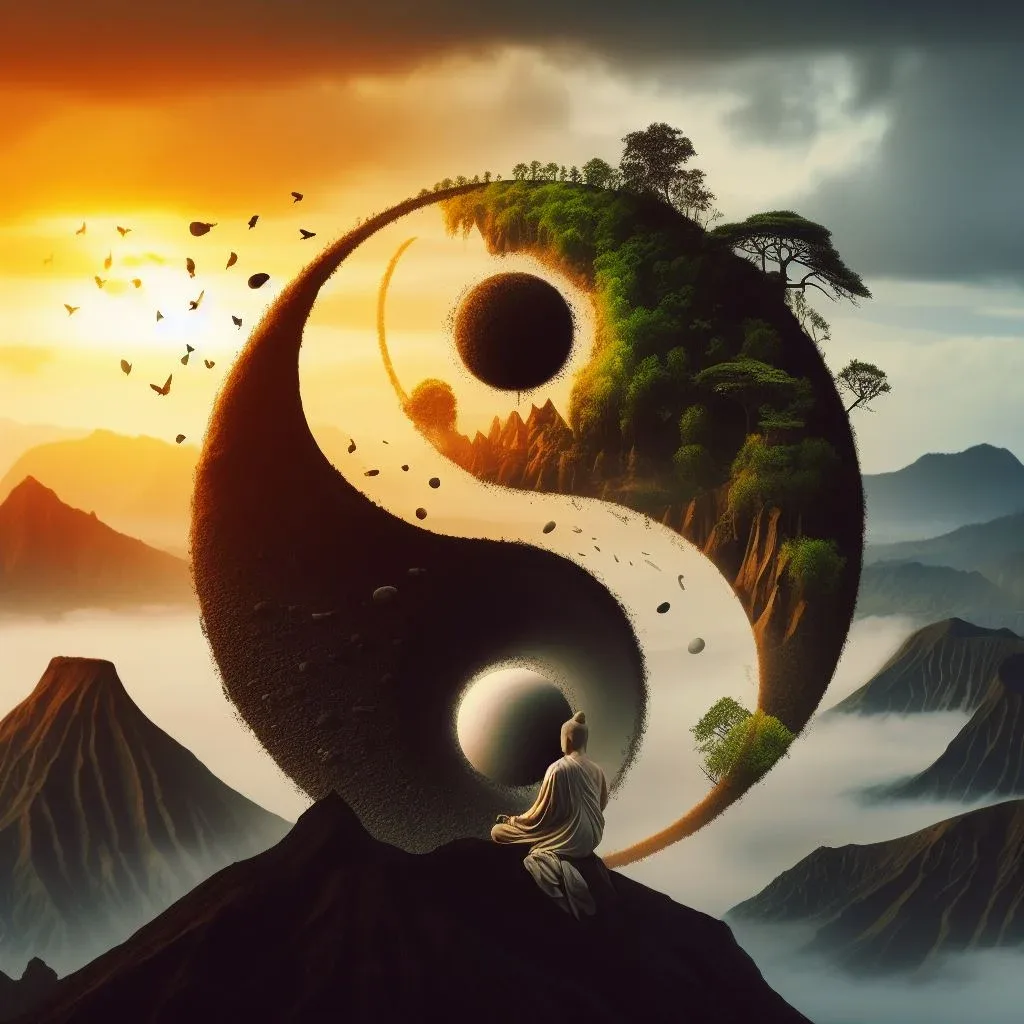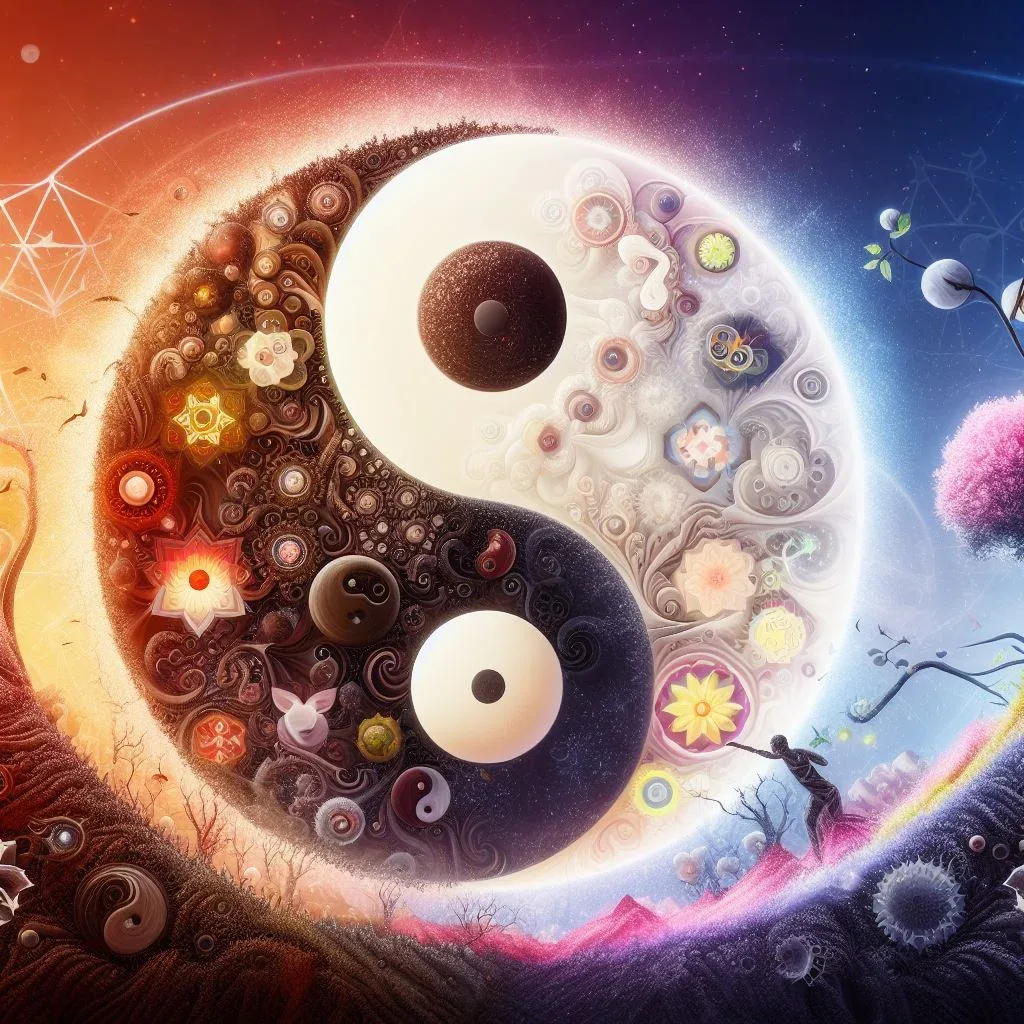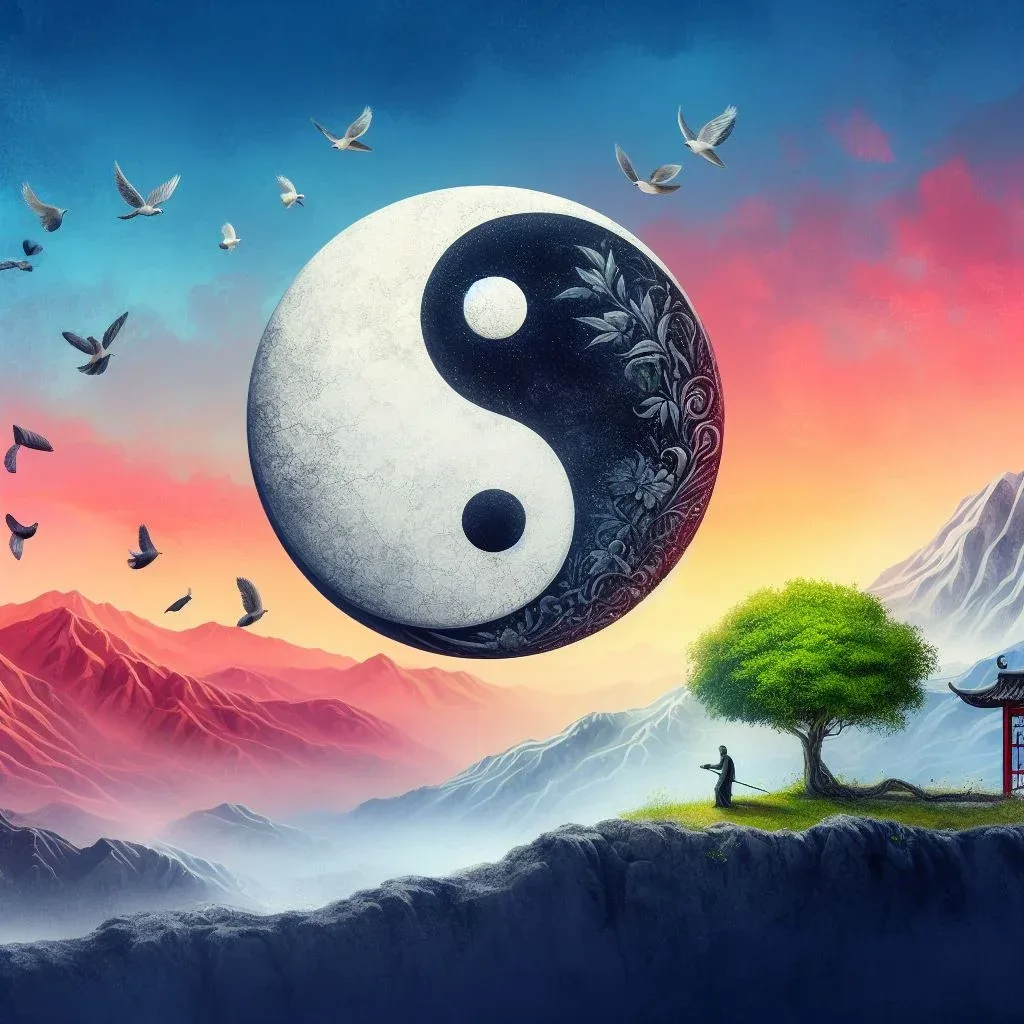The idea of transformation is an intrinsic part of the concept of Yin Yang in Chinese philosophy. Yin and Yang are not only opposing forces, but they are also constantly changing and transforming. In this article, we will explore the relationship between Yin Yang and transformation, relating this to the philosophies of change and growth. We will analyze how understanding this transformation can be applied in everyday life.

The Dynamic Nature of Yin Yang
The concept of Yin Yang is often represented by a circle divided into two halves, one dark (Yin) and the other light (Yang), with a Yin point in half of Yang and a point of Yang in half of Yin. This visual representation symbolizes the dynamic and ever-changing nature of these forces.

In Yin Yang, there is no rigidity, but rather fluidity. Yin can transform into Yang, and Yang can transform into Yin. This continuous transformation reflects the reality of life, where everything is subject to constant change and evolution.
Philosophies of Change and Growth
Understanding transformation in the context of Yin Yang has parallels in several philosophies that address change and growth. Here are some of these philosophies and how they relate to the idea of transformation:
1. Buddhism: Impermanence
In Buddhism, impermanence is a key concept that teaches that everything in life is transient and subject to change. Just as Yin and Yang transform, impermanence reminds us to embrace change and find peace in accepting that nothing is permanent.
2. Philosophy of Existence: Personal Growth
Existentialist philosophers, such as Jean-Paul Sartre, emphasize personal growth and the search for meaning. Just as Yin and Yang evolve, people are encouraged to develop and find their purpose in life.
3. Positive Psychology: Self-Improvement
Positive psychology promotes self-improvement and personal flourishing. Just as Yin Yang is constantly transforming, positive psychology invites us to seek our best selves and grow in all areas of life.
Practical Application in Everyday Life
Understanding transformation in Yin Yang and philosophies of change and growth can be applied to everyday life in several ways:

1. Acceptance of Change
Accepting that change is a natural part of life can help reduce resistance to change and better deal with transitions.
2. Personal Development
Seek personal growth and continuous improvement, recognizing that you are constantly changing.
3. Resilience
Develop resilience by understanding that, just as Yin and Yang transform, overcoming challenges is an important part of the journey.
The Journey of Transformation
Transformation is a continuous and inevitable journey. Just like Yin Yang, our lives are subject to constant change, and it is essential to embrace this reality. By understanding the dynamic nature of Yin Yang and how it relates to philosophies of change and growth, we can find wisdom and guidance for our own journey of transformation.
Transformation is, therefore, a reminder that life is a journey of evolution, where balance, change and growth play fundamental roles.
FAQ – Yin Yang Transformation and Philosophies of Change and Growth

- What is transformation in the context of Yin Yang? Yin Yang transformation refers to the idea that Yin can transform into Yang and vice versa, reflecting the dynamic nature of these opposing forces.
- How does transformation relate to change and growth in philosophies? Transformation is related to change and growth, as it emphasizes the constant nature of evolution and the search for balance amid these changes.
- What is the importance of accepting impermanence in Buddhist philosophy? Acceptance of impermanence in Buddhism is crucial to finding peace, as it reminds us that everything in life is transient and subject to change.
- How do existentialist philosophies approach personal growth? Existentialist philosophies, such as that of Jean-Paul Sartre, emphasize personal growth and the search for meaning, encouraging people to develop themselves on their journey.
- How does positive psychology relate to the concept of transformation? Positive psychology is linked to the search for self-improvement and personal flourishing, promoting the idea that we are in constant transformation and growth.
- How can I apply the understanding of transformation to everyday life? You can apply an understanding of transformation by seeking to embrace change, promoting personal development, and cultivating resilience in the face of challenges.
- What is the central message of Yin Yang transformation? The central message is that transformation is an inevitable and natural part of life, and we must embrace this reality on our journey of evolution.
We hope this FAQ has clarified your doubts about Yin Yang transformation and how it relates to the philosophies of change and growth. If you have more questions or would like to explore these concepts in more depth, please feel free to do so.





